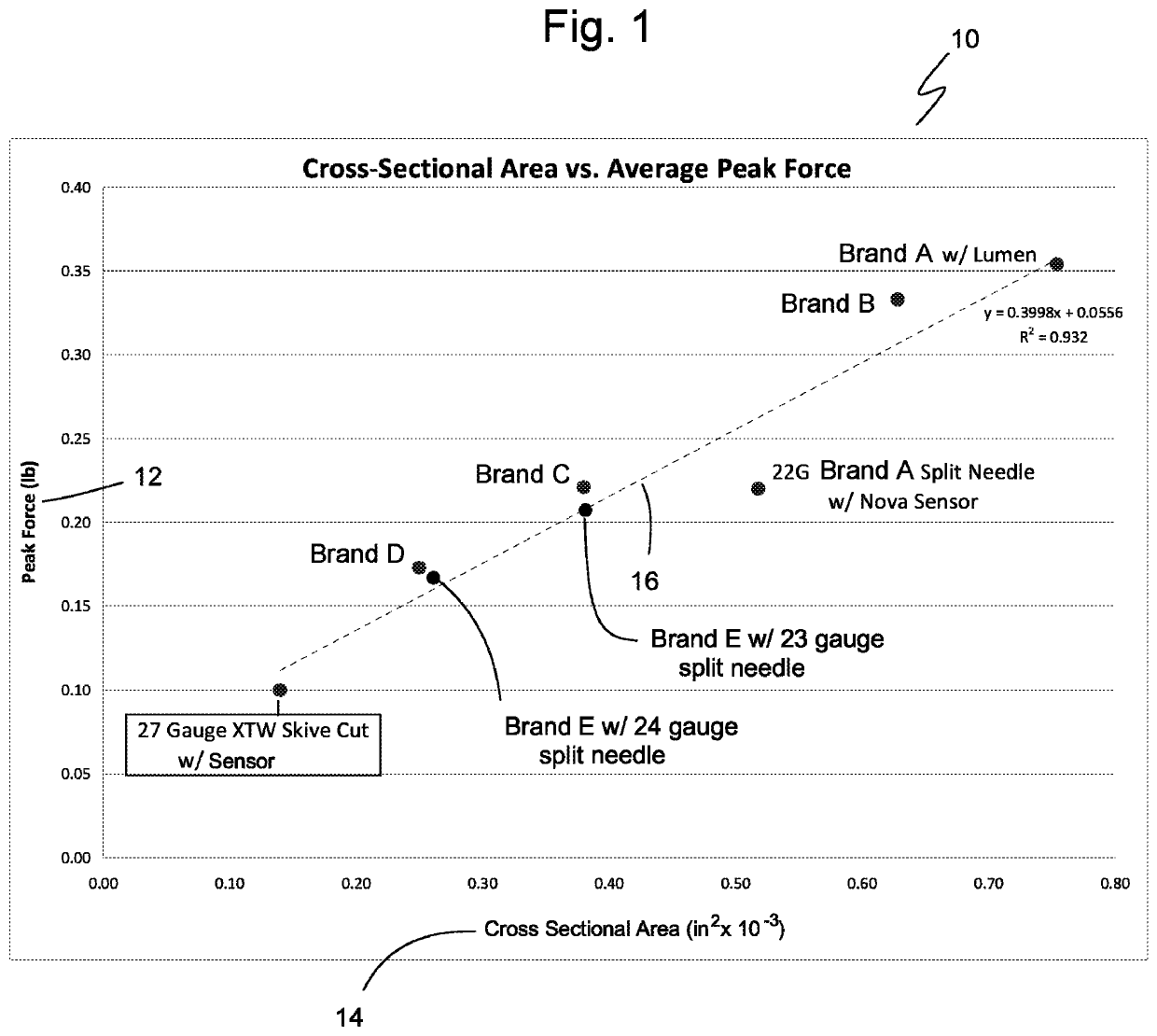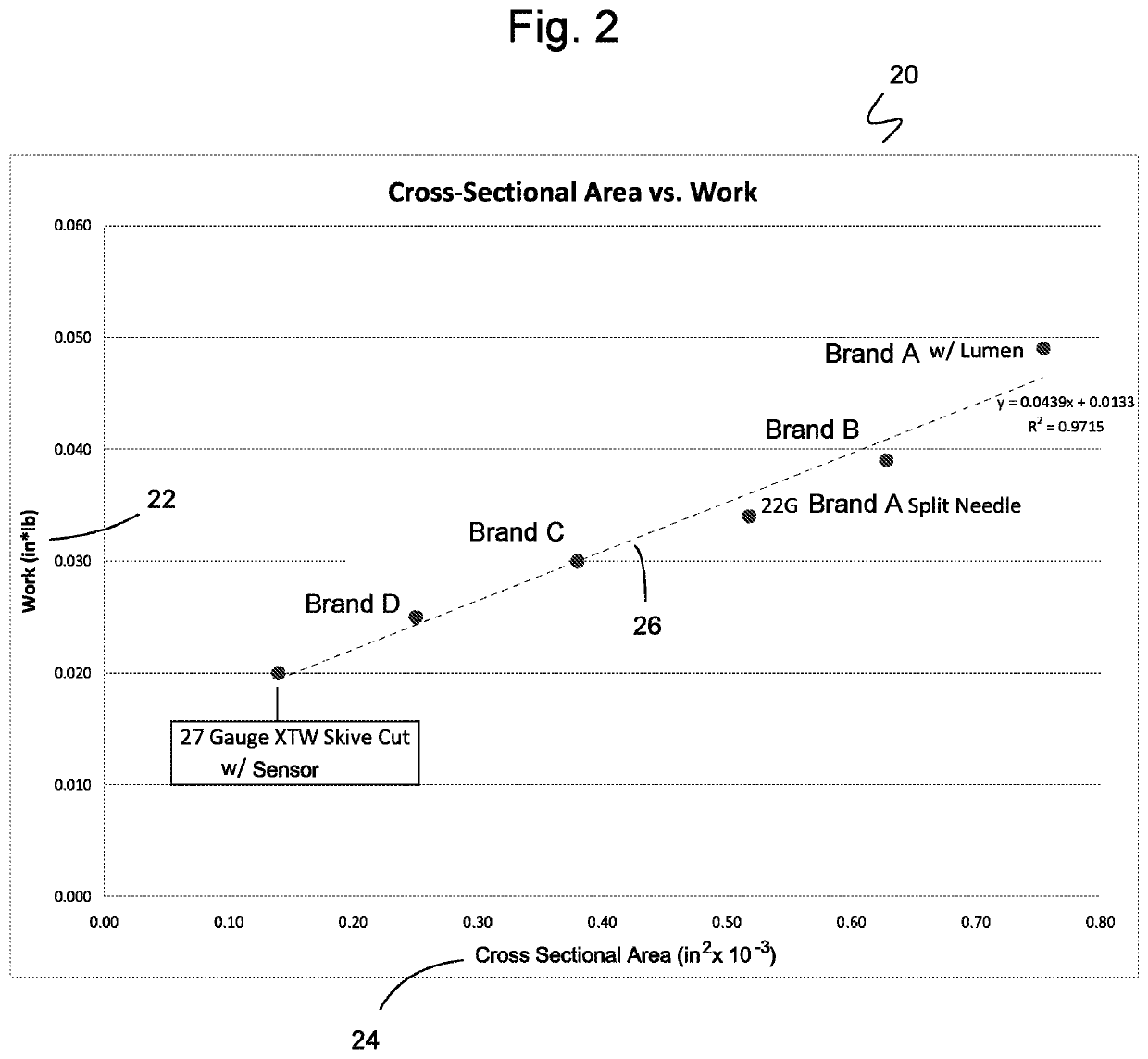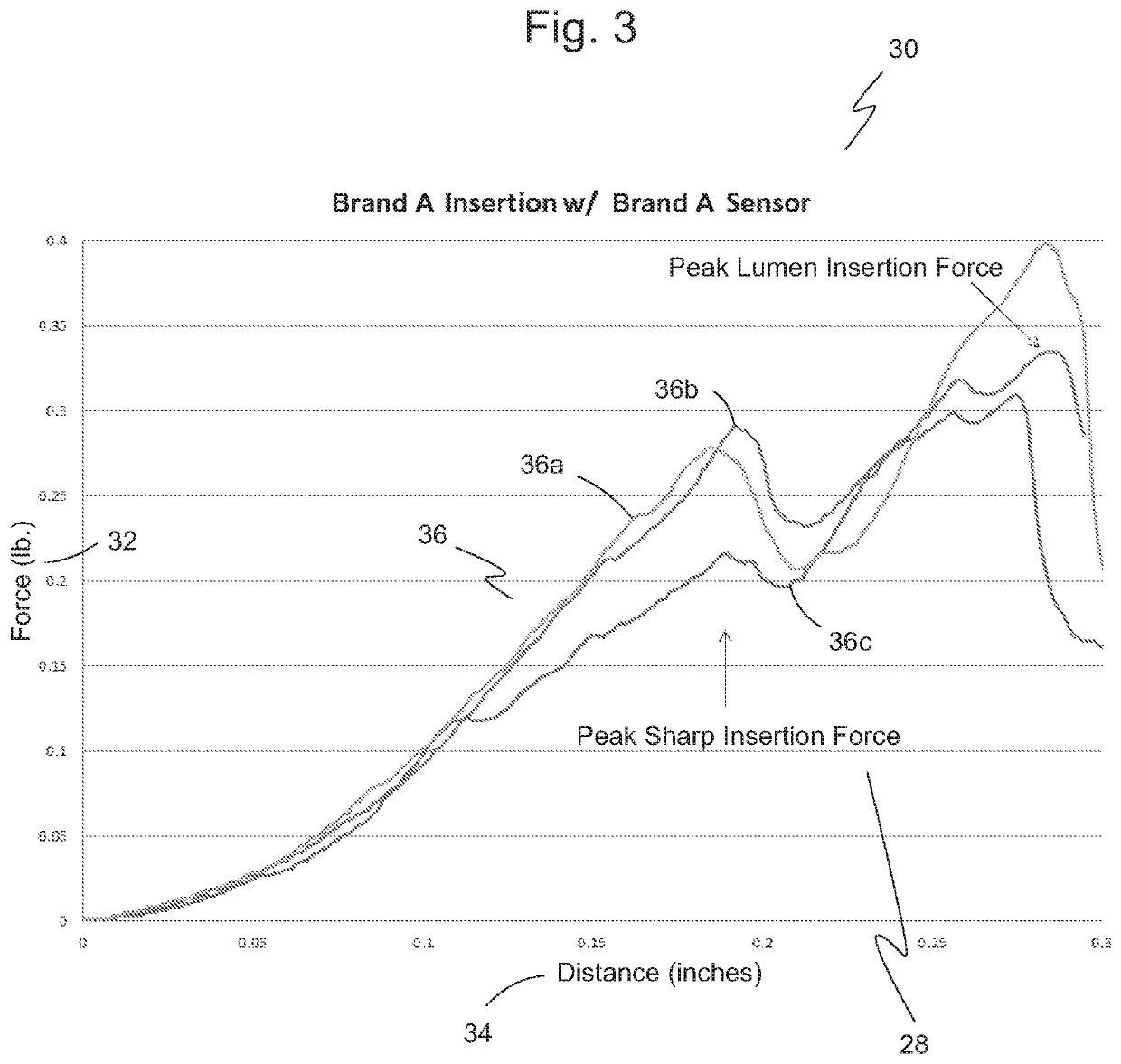Continuous glucose monitoring system and method
a glucose monitoring and continuous technology, applied in the field of continuous glucose monitoring, can solve the problems of slow adoption of continuous glucose monitoring devices by many patients, cgm users' pain of deployment, and cgm users' complaints, so as to minimize pain, minimize insertion peak force, and minimize pain
- Summary
- Abstract
- Description
- Claims
- Application Information
AI Technical Summary
Benefits of technology
Problems solved by technology
Method used
Image
Examples
Embodiment Construction
[0151]Exemplary embodiments of the present invention are illustrated in FIGS. 4-55. FIGS. 4 and 5 illustrate perspective views of one embodiment of a needle / sharp 100 of the present invention. Needle / sharp 100 includes a sharp body 102, a sharp open region 104, and a sharp tip 106. Sharp body 102 is an annular section of sharp 100 that extends longitudinally and defines an enclosed conduit 101 therethrough. In one embodiment, sharp 100 is made from 27 gauge XTW stainless tubing having an outside diameter of about 0.016 inch (0.41 mm) nominal and an inside diameter of about 0.012 inch (0.30 mm) nominal. The tubing is then flattened to have an oval or elliptical shape with an outside height 108 along the minor axis of the oval or elliptical shape of about 0.0120 inch (0.30 mm). With the new sensor fabrication discussed later, it is possible that a smaller sharp 100 made from 28 gauge XTW stainless steel tubing having an outside diameter of about 0.014 inch (0.36 mm) nominal and an ins...
PUM
 Login to View More
Login to View More Abstract
Description
Claims
Application Information
 Login to View More
Login to View More - R&D
- Intellectual Property
- Life Sciences
- Materials
- Tech Scout
- Unparalleled Data Quality
- Higher Quality Content
- 60% Fewer Hallucinations
Browse by: Latest US Patents, China's latest patents, Technical Efficacy Thesaurus, Application Domain, Technology Topic, Popular Technical Reports.
© 2025 PatSnap. All rights reserved.Legal|Privacy policy|Modern Slavery Act Transparency Statement|Sitemap|About US| Contact US: help@patsnap.com



